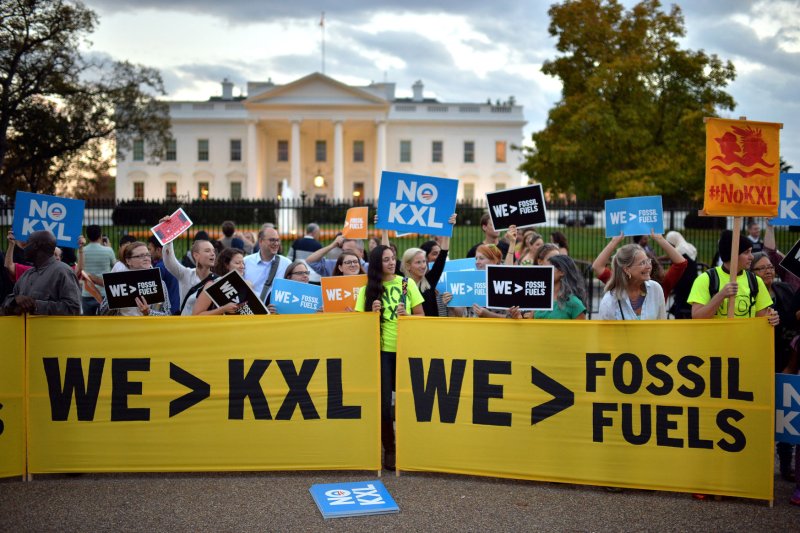Climate activists and environmental supporters rally at the White House. The highest court in Nebraska now hears a case on landowners seeking compensation from pipeline planner TransCanada. File photo by Kevin Dietsch/UPI |
License Photo
Jan. 8 (UPI) -- Claims by Nebraska landowners for compensation from pipeline company TransCanada on Keystone XL-related costs rests with the state's highest court, advocates say.
Bold Nebraska, an organization that's steered a multi-year campaign against the Keystone XL pipeline from Canada, said 40 landowners are challenging eminent domain proceedings launched by TransCanada two years ago.
"The landowners are still seeking compensation from TransCanada for legal fees and court costs from fighting the foreign company's eminent domain threats and tar sands export pipeline project for seven years," the group said in a weekend campaign letter.
The pipeline's progress was stimulated when U.S. President Donald Trump took office last year and used the power of the executive office to facilitate North American oil and gas infrastructure.
A decision drafted in 2015 by the State Department under U.S. President Barack Obama said there were questions about the necessity for additional North American pipeline capacity given uncertainties about the future growth of Canadian oil sands production.
Referencing long-standing concerns about the Sandhills region in Nebraska, some of which were the source of legal battles, regulators on the Nebraska Public Service Commission sided against the preferred route for Keystone XL and instead voted for an alternate route that allayed ecological concerns.
The Nebraska Department of Environmental Quality published a report more than three years ago on the need to avoid the Sandhills area. The state PSC said parts of the pipeline would be exposed and therefore vulnerable if TransCanada built the $8 billion pipeline through the region as planned.
TransCanada is already facing market headwinds given the lack of shipper commitments for the pipeline. The Nebraska Supreme Court takes up the landowner hearing Tuesday morning.
The original leg of its Keystone pipeline in the United States ruptured and released 5,000 barrels of oil in rural South Dakota in mid-November.















